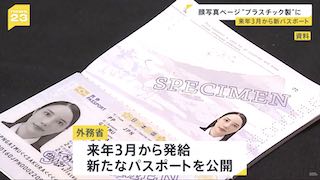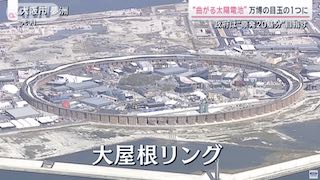Oct 08 (News On Japan) - Automated buying and selling systems, also called algorithmic buying and selling or algo buying and selling, have transformed the panorama of monetary markets by way of enhancing efficiency and liquidity.
These systems leverage advanced algorithms and generation to execute trades primarily based on predefined criteria, including charge moves, trading quantity, and timing. Automated trading systems can help investors to make calculated decisions but investment education is a must! Visit the official site of Ai Definity Pro and learn more.
Definition and Functionality of Automated Trading Systems
Automated trading structures are PC programs designed to execute trades automatically in keeping with precise algorithms and techniques. These structures analyze marketplace information, generate buying and selling alerts, and place orders without human intervention.
Algorithm Design:
Algorithms are crafted to observe precise regulations and standards. They may additionally don't forget elements like technical indicators, historic facts, and market tendencies to determine trading movements.
Execution:
Once a buying and selling signal is generated, the system executes the alternate based on the surest price and timing. The velocity and precision of execution are key benefits of automatic trading structures.
Backtesting:
Before deployment, algorithms are back tested using historic facts to evaluate their overall performance. This procedure enables refinement of techniques and optimization of algorithms for actual global trading.
Enhancing Market Liquidity
One of the primary ways automatic trading structures improve market efficiency is by improving liquidity. Liquidity refers to the convenience with which property can be offered or offered without affecting their fee.
Increased Trading Volume:
Automated systems execute a high volume of trades within brief timeframes. This growth in trading volume contributes to greater market liquidity, making it easier for participants to enter and exit positions.
Narrower Bid-Ask Spreads:
By presenting continuous purchases and promoting orders, automatic trading systems assist with slender bid-ask spreads. A narrower spread reduces the fee for buying and selling and improves the performance of price discovery.
Reduced Market Impact:
Automated structures can execute huge orders without significantly impacting market costs. This capability is especially beneficial in excessive-frequency buying and selling, where fast execution is critical.
Speed and Precision
The pace and precision of automated buying and selling structures significantly contribute to market efficiency. These systems can react to market conditions and execute trades faster than human investors.
Low Latency:
Automated systems operate with minimal latency, postponing order placement and execution. Low latency allows investors to capitalize on charge actions and marketplace opportunities in real-time.
Accurate Execution:
Algorithms are designed to execute trades at particular prices, lowering the danger of slippage. Accurate execution guarantees that trades are performed consistent with the supposed method and decreases the likelihood of errors.
Real-Time Data Processing:
Automated structures process huge amounts of market information in real-time, enabling short-term choice-making and trade execution. This functionality enables us to preserve marketplace performance and respond to conversion situations directly.
Improving price discovery
Price discovery is the technique by which market expenses are decided primarily based on supply and demand. Automated trading structures play a vital role in enhancing charge discovery with the aid of continuously analyzing marketplace records and adjusting expenses accordingly.
Efficient Price Adjustment:
Automated systems respond quickly to market statistics and regulate fees based on delivery and demand dynamics. This rapid adjustment enhances the accuracy of market charges and reflects contemporary market situations.
Informed Pricing:
Algorithms incorporate different factors, inclusive of monetary indicators and news activities, into their selection-making strategies. This incorporation of facts results in more knowledgeable pricing and reduces the probability of mispricing.
Arbitrage Opportunities:
Automated systems can pick out and take advantage of arbitrage opportunities, wherein charge discrepancies exist between one-of-a-kind markets or gadgets. By closing these gaps, automated buying and selling systems contribute to greater accuracy and efficiency in pricing.
Minimizing Human Error
Human errors can notably impact trading effects, leading to inefficiencies and losses. Automated trading structures help decrease human mistakes by adhering to predefined regulations and casting off emotional biases.
Enhancing market transparency
Market transparency refers to the availability of statistics about marketplace situations, charges, and buying and selling activities. Automated buying and selling structures enhance marketplace transparency by presenting actual-time facts and improving visibility.
Addressing Market Inefficiencies
Automated trading structures deal with various market inefficiencies by leveraging advanced algorithms and technologies to optimize buying and selling approaches.
Challenges and Considerations
While automatic buying and selling systems offer numerous blessings, they also include challenges and considerations that buyers must address.
Conclusion
Automated buying and selling structures play a pivotal role in improving market performance by enhancing liquidity, pace, precision, and charge discovery. These systems leverage superior algorithms and technology to execute trades quickly and correctly, contributing to a more obvious buying and selling environment. By minimizing human errors, addressing marketplace inefficiencies, and imparting actual-time records, automatic trading systems offer significant advantages to investors and traders. However, challenges consisting of machine reliability, algorithmic hazards, and regulatory considerations should be addressed to ensure the effectiveness of trading systems. Understanding how automatic trading systems enhance marketplace performance offers treasured insights into their financial markets.














